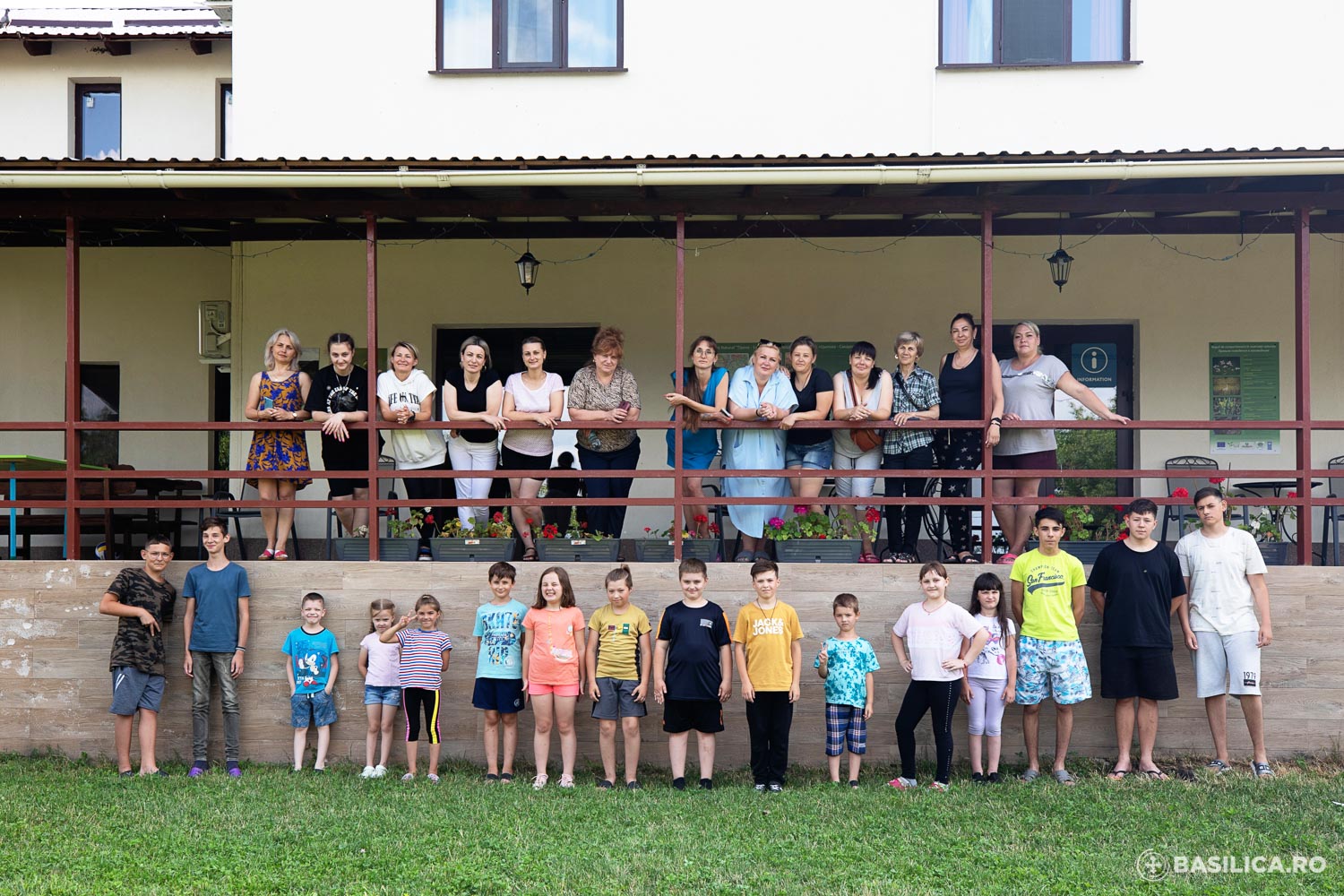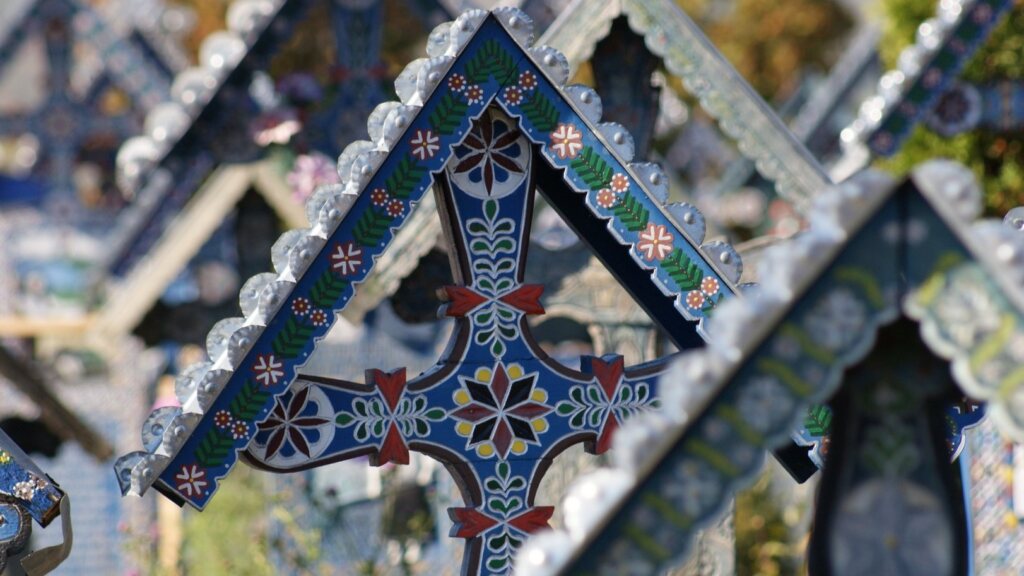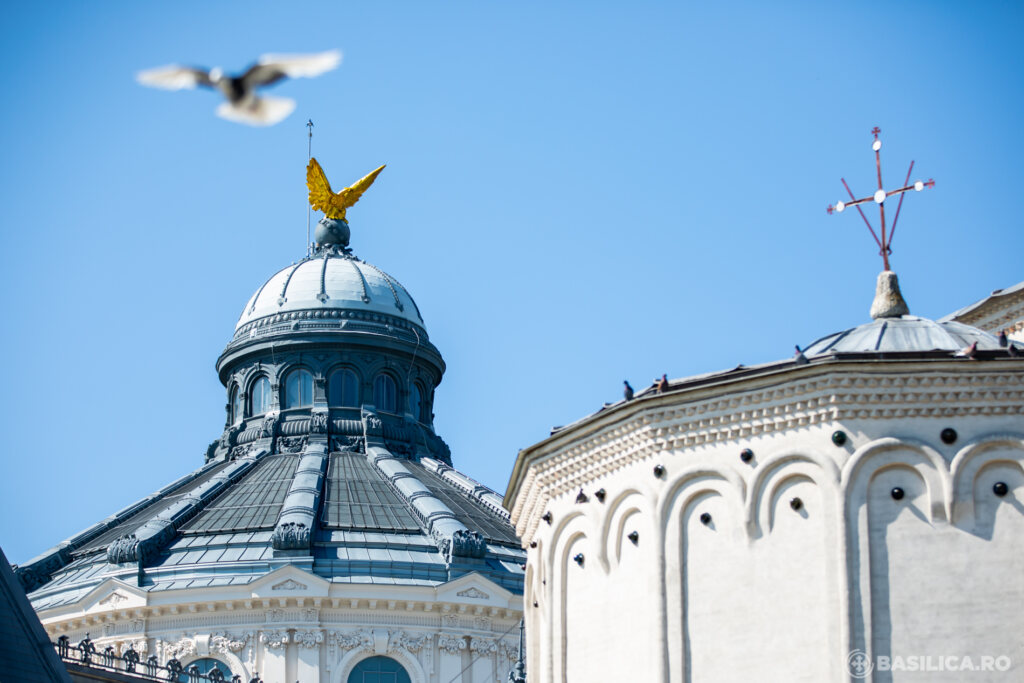Throughout July 2023, refugee mothers from Ukraine spend a free holiday with their children in the Republic of Moldova, in a programme entitled “Bridges of Solidarity” and implemented by the Diaconia Social Mission with the financial support of Caritas Ambrosiana. Women who fled the war are torn between homesickness and fear for their future.
The participants are refugees who benefit from assistance at Diaconia Social Mission’s “Anastasis” Educational Centre in Bălți, the Republic of Moldova, and from Ukraine’s Odessa region, where Caritas Ambrosiana offers aid.
“The camp is organized in Tsipova, an extraordinary place with an exceptional history and special flora and fauna. Here is the monastery where Stephen the Great is believed to have married Maria Voichița, which we visited in the context of the saint’s feast day,” says Iraida Cazacu, coordinator of the Diaconia Social Mission’s “Saint Anne” Multifunctional Centre for Children and Families in Kishinev.
“We thought we’d give mothers the opportunity to spend time with their children – besides making homework with them. The requests for participation exceed our expectations.”
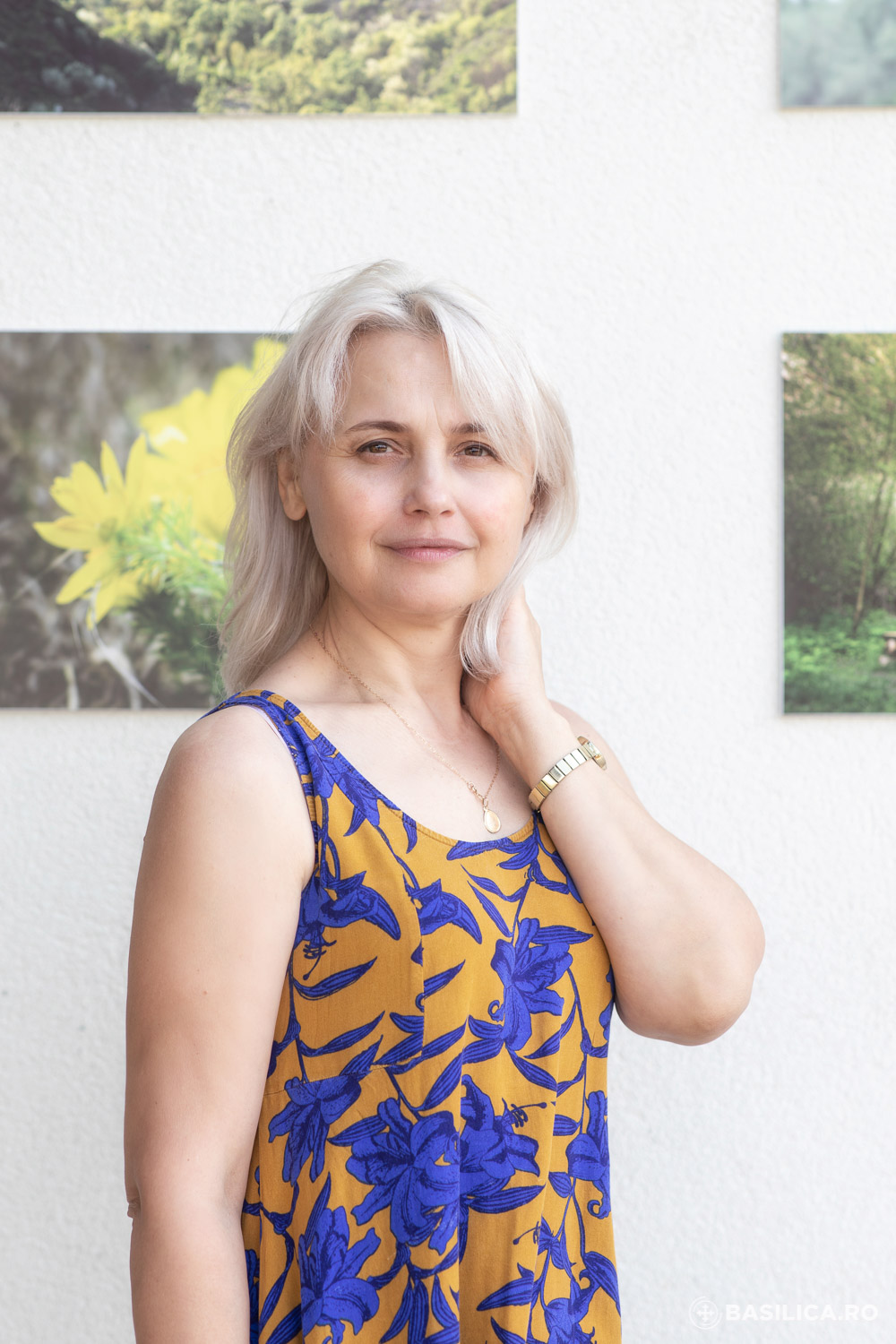
“We want to see as many beautiful places as possible with a positive energy charge, which will make them feel good, because the war has left its mark on them,” adds Iraida Cazacu.
The camp programme includes hikes, traditional crafts workshops and group therapy with a psychologist.
The first two series of the camp are made up of mothers assisted by Diaconia Social Mission’s “Anastasis” Educational Centre in Bălți, which is at the forefront of refugee aid efforts in Moldova. The participants were accompanied by Liliana Lungu, coordinator of the centre.
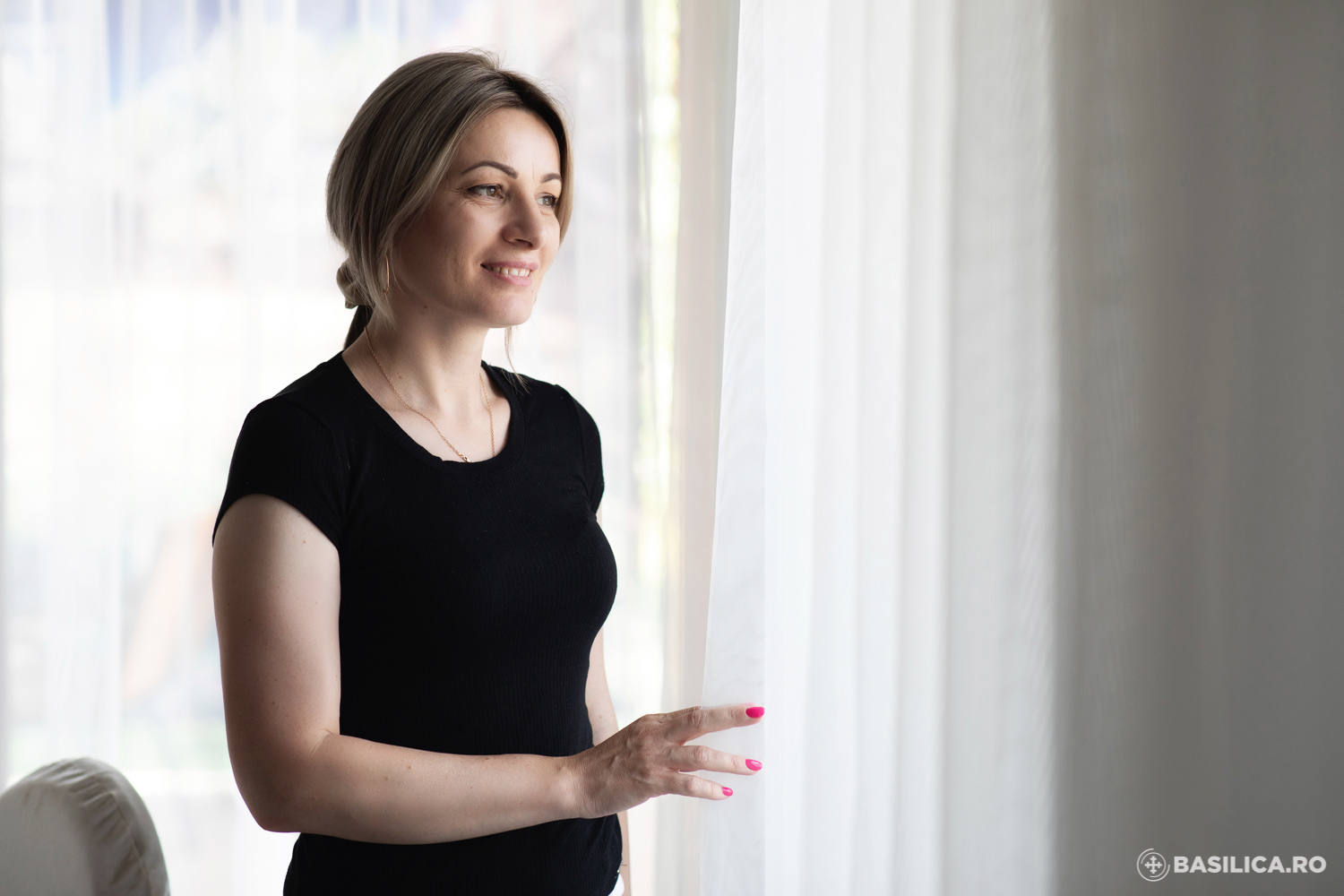
“We are two pedagogues accompanying them and we are happy to be here for a week,” says Liliana Lungu. “Although I am from this country and I’ve been to several other countries on the continent, I hadn’t been here, in Tsipova, before and I find it very special. Today’s hike was informative for me, I was pleasantly surprised to hear that here we walk in Stephen the Great’s footsteps.”
“What awaits us back home?”
Irina, a Ukrainian mother from Zhitomir, arrived at the “Anastasis” Centre last March. In Ukraine, she lived with her two children in a military centre, where alarms went off very often. “The scariest are the sirens, when you don’t know which way to turn,” she says. “There was a very active military group nearby, which did a lot of damage.”
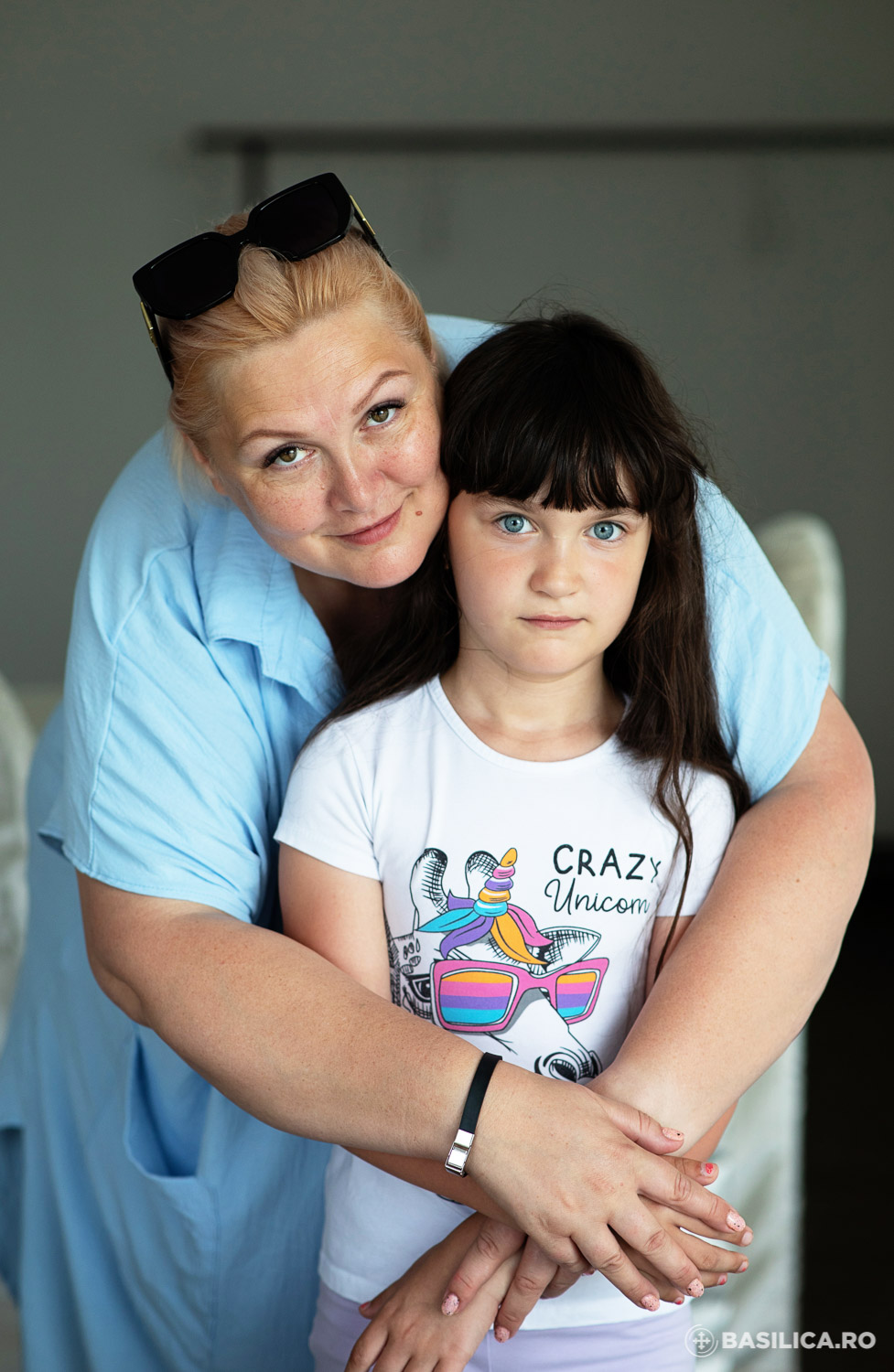
After each bombing, the block they lived in became increasingly rickety. When the children’s school was destroyed, Irina made the decision to leave. “When you make such decisions, all you have in mind is to save your child. The rest doesn’t matter,” she explains.
“We are strong and support each other here. I have hope. But the big question is what awaits us back home. I’d like to go back home, but I don’t know what I am returning to. The future is still worrying and unclear.”
Anxiously waiting for the husband’s message
Victoria is from Kherson, on the left bank of the Dnieper River, which was occupied in the first moments of the Russian invasion. The whole family lived in a cellar for about two months, hoping things might calm down.
The husband, a former soldier, remained isolated and trapped in his own home. When he was offered to fight on the Russian side, he flatly refused. But, with the city occupied, he could not get to other areas to join the fight to defend Ukraine.
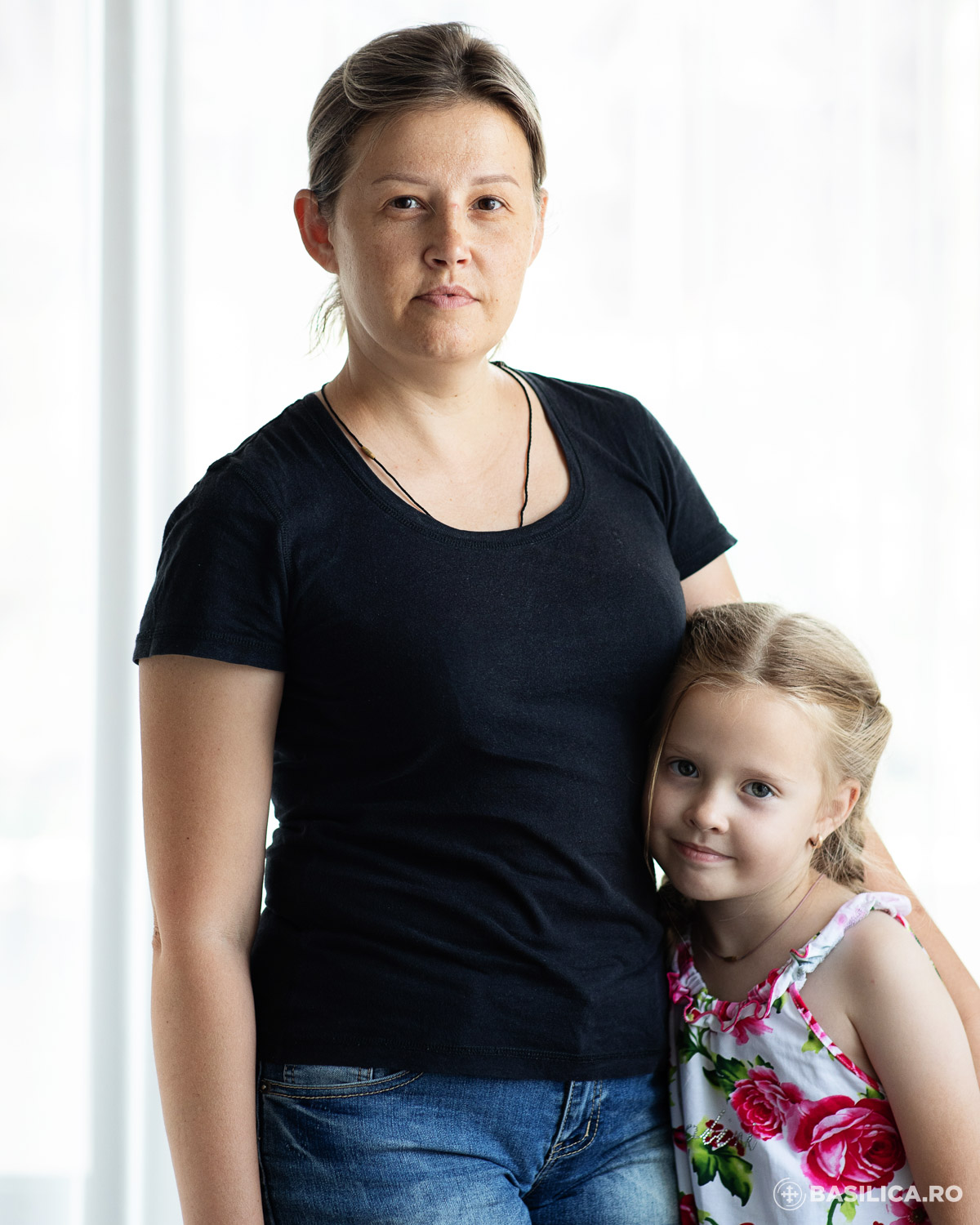
One evening, Victoria’s husband told her to gather her things, because the next morning someone would come and pick her up with her children. He stayed put and has been in hiding to the present.
“It’s unbearable. It’s heartbreaking to experience this. I’m holding my breath for a message from my husband, more rarely maybe a call,” Victoria says. “Sometimes we can’t communicate for two or three weeks at a time. All this time I keep my eyes on the phone and, when a message comes, I give thanks to God.”
Victoria has a five-year-old daughter and a 17-year-old son, Mikhail. For a year, he was a regular beneficiary of the “Anastasis” Educational Centre in Bălți, taking advantage of the support offered to study online. His efforts bore fruit when he graduated from the distance a secondary school in Ukraine.
With his distance learning certificate, the young man wants to enroll for the Faculty of Psychology at the “Alecu Russo” University in Bălți.
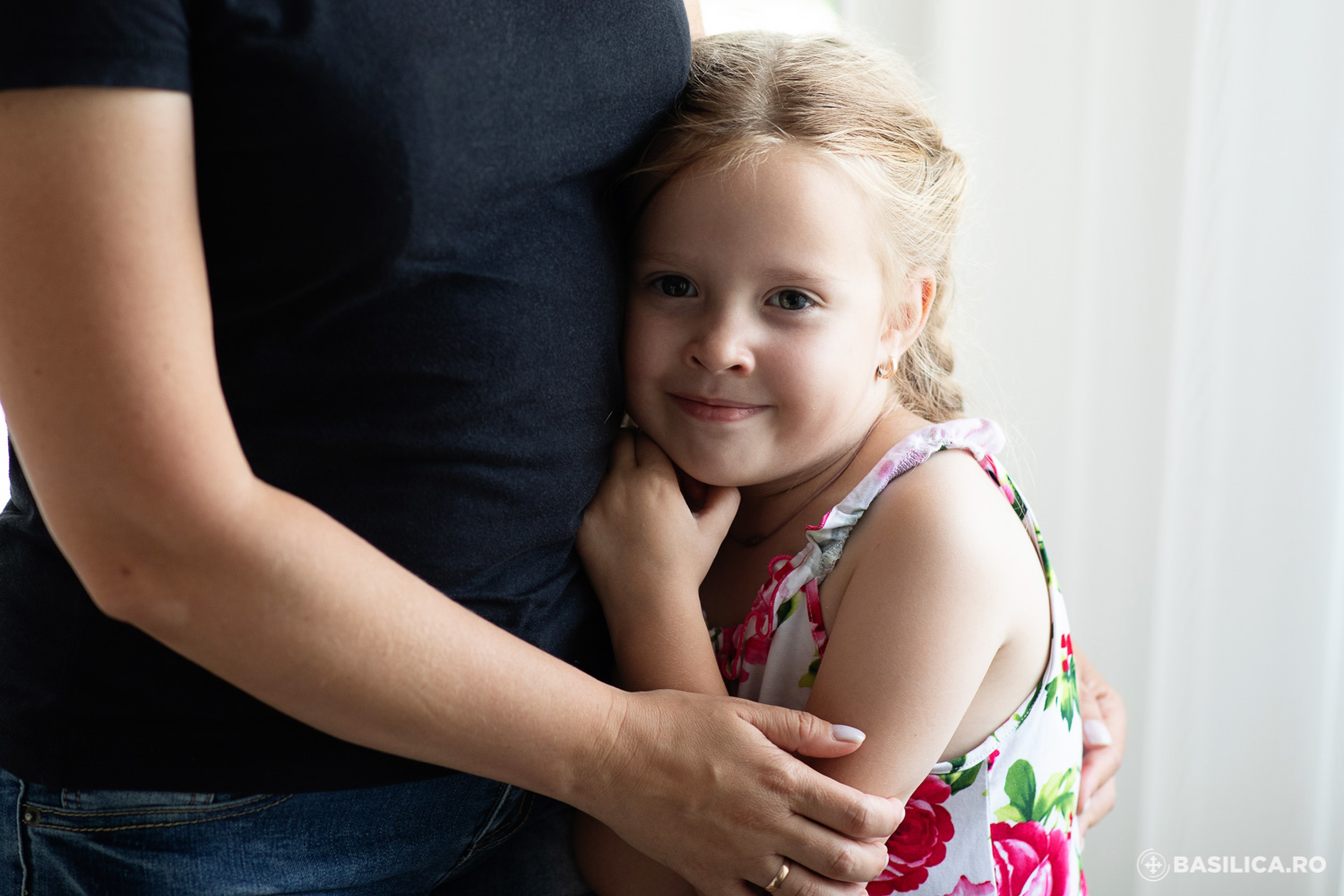
“Mikhail is a young man with initiative, he was all the time at the centre when the teachers needed help. Active, involved, responsible. He helps and supports Victoria a lot”, says Liliana Lungu.
“Victoria is practically part of the ‘Anastasis’ family, she comes almost every day and we talk, participate in recreational activities or simply have a cup of tea. So I have gotten to know her story closely. The children motivate her and support her so that she can keep going. She has something to look forward to”, adds the coordinator of the “Anastasis” Educational Centre.
“If it weren’t for them, it would all be over. They help a lot. I don’t want to rush things, but I really want all this to be over as soon as possible,” concludes Victoria.
“The Republic of Moldova, a safe and healthy space”
Olena, an employee of the “Anastasis” Educational Centre in Bălți, has joined the first batch of beneficiaries at the summer camp in Tsipova. A trained psychologist, she has taken refuge in the Republic of Moldova with her two young sons. Her eldest son, a restorer of sacred art, is currently in a monastery in Ukraine, where the war has caught up with him.
“Olena was looking for a job and had the necessary credentials and skills to be selected as the centre’s social pedagogue. In time, Olena became our bridge of communication with the refugee mothers from Ukraine,” explains Liliana Lungu.
“Thanks to her, we were able to learn more about the situation and needs of the refugees. They need material resources, but most of all they need support, especially in the first period.”
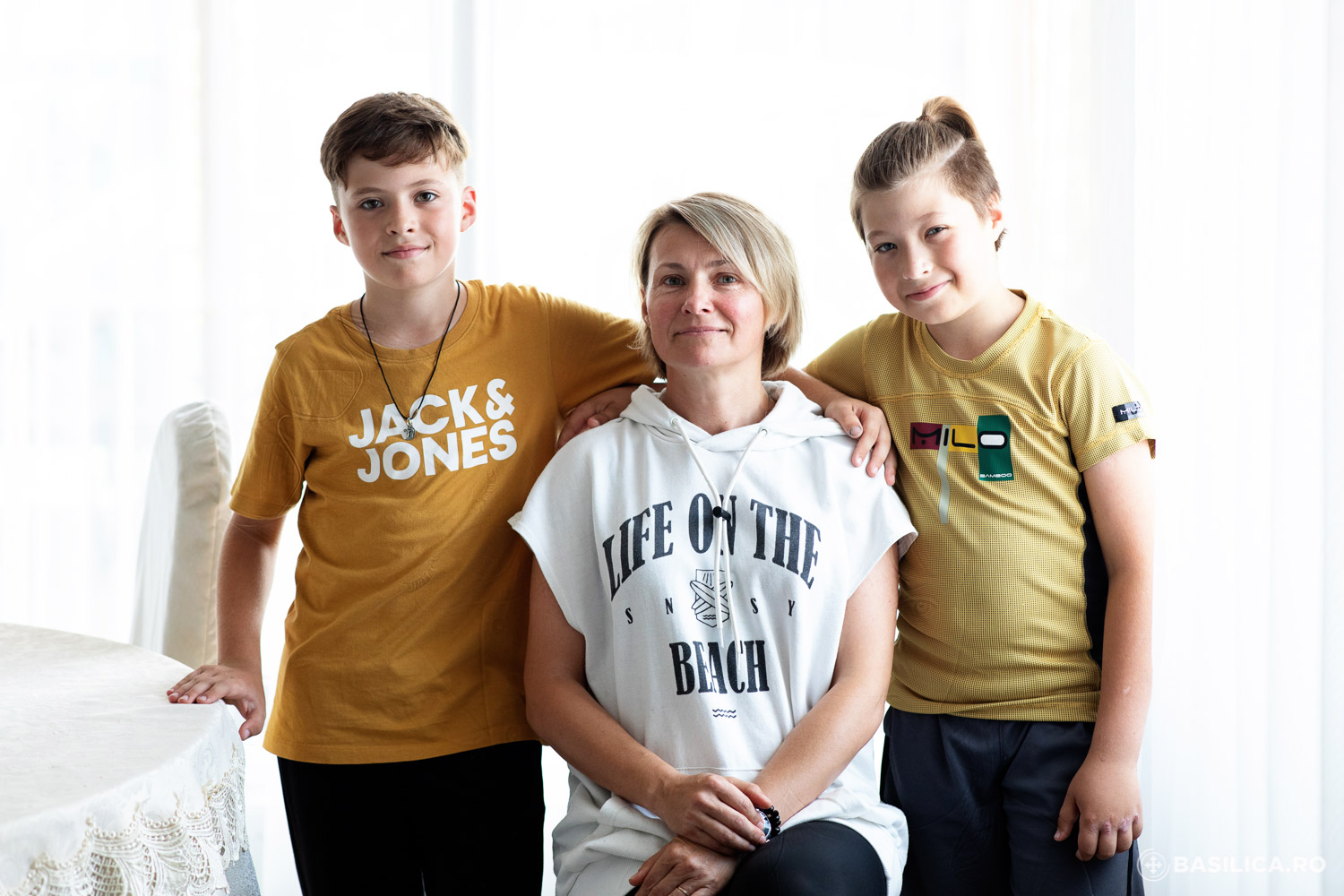
“I see among Ukrainian refugees not only neurosis, but even psychosis. That’s why I prefer to stay here, in Moldova. It’s a safe and healthy place,” says Olena.
Yet, the thought of returning home never leaves her and she is homesick even in these conditions, when the bombings continue back home. She knows that at home, the classes are often interrupted and everyone is running for shelter. When she heard that a missile fell near the school where she used to work, she imagined what it would be like to be there with her children. The thought gave her chills.
“No mother in the world could remain indifferent to that thought. I have only two options: go back and work in the school in Kyiv where I used to work, risking death there, or stay in the Republic of Moldova.”
Close to home, waiting for peace
Iraida Cazacu from Kishinev’s “St. Anne” Centre says there were several mothers with their children who went back home, but soon returned to the Republic of Moldova. They did it “for the peaceful sleep of their children,” she says.
“I don’t have a statistic, but my estimate is that about half of the refugees who reach Moldova stop here,” says Liliana Lungu.
“They don’t want to go very far from home. Those who want to go back to their homes stop here. Not all of them go far away, because they are impatiently waiting for peace to come, so they can go back to their homes.”
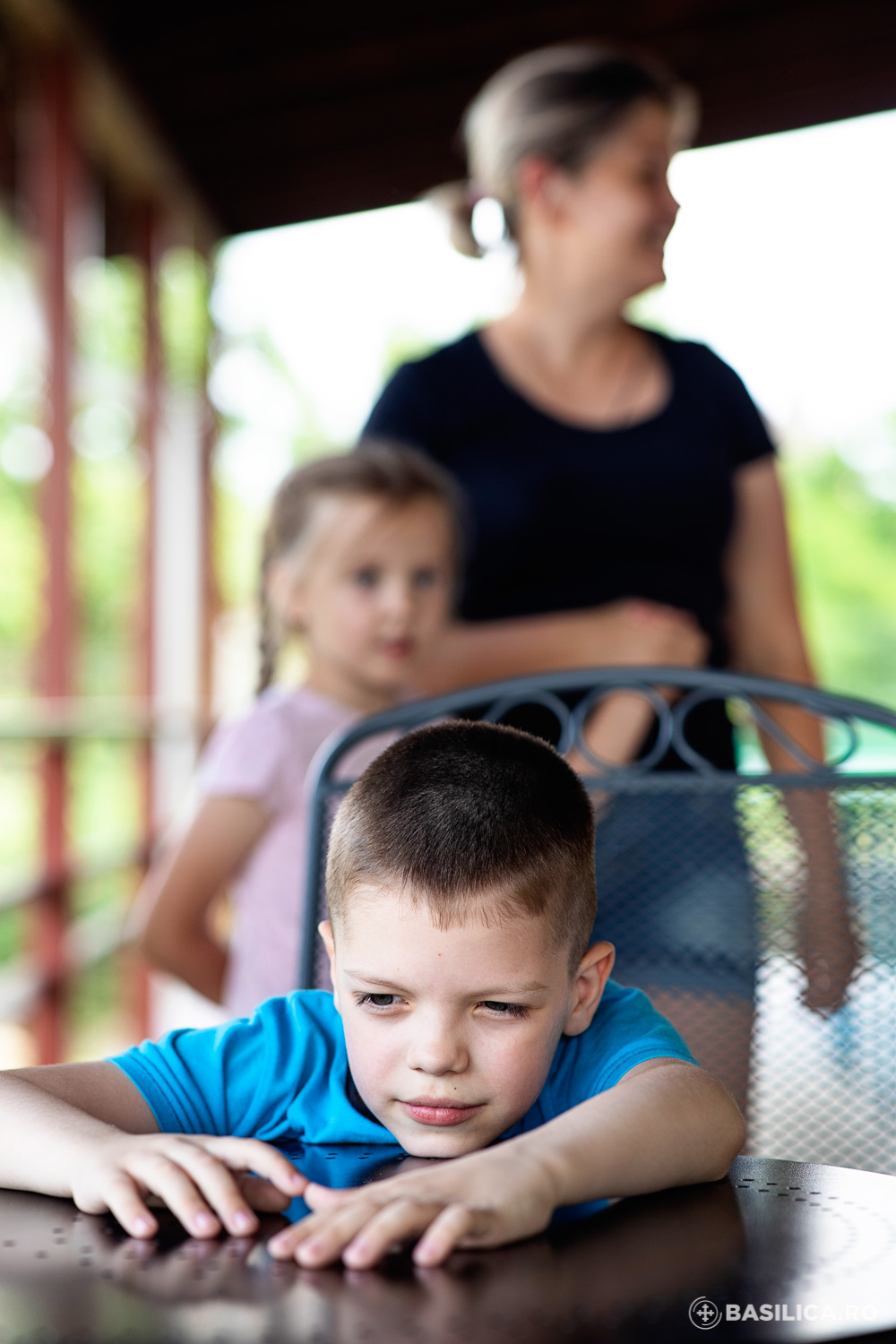
The “Bridges of Solidarity” summer camps are organized by the Diaconia Social Mission in partnership with Caritas Odessa and with the financial support of Caritas Ambrosiana. The mothers and their children are accommodated at the MUZE tourist guesthouse, Tsipova Natural Reserve.
The Diaconia Social Mission is the charity organization of the Metropolis of Bessarabia.
Photo credit: Basilica.ro / Raluca Ene
Follow us on Twitter: @BasilicaNews
